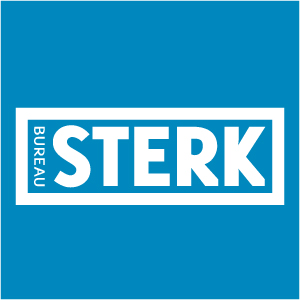

Bureau STERK

Gelderland, Netherlands The
May 2025
Other education
Service with Minor Environmental Footprint
Netherlands The
From the very first day since its founding in 2008, Bureau STERK has been a company with a strong social mission. Today, it is a B Corp certified EVC provider (Validation of Prior Learning) based in Culemborg, the Netherlands. We help individuals and organisations formally recognise professional talents, experiences and competence/skills through structured EVC trajectories for certifications and registrations (e.g., school leadership, SKJ, exemptions for (parts of) mbo/hbo diplomas). Bureau STERK's positive and appreciative methodology, grounded in principles such as positive psychology and Appreciative Inquiry, strongly emphasises dialogue. This interactive element is key to the approach, as it helps discover what already works well and amplifies those strengths through holistic development conversations. Moreover, STERK's ability to make 'value visible and demonstrable' by turning insights from tools like the STERKscan into clear, actionable outcomes is significant. This helps professionals to identify, showcase, and leverage their core strengths in their learning and career paths. Our signature tools include the STERKscan, a visually engaging online tool that maps personal and professional identity and growth, and STERiK, an interactive (child)-development portfolio. With ov
Overall B Impact Score
Governance 14.2
Governance evaluates a company's overall mission, engagement around its social/environmental impact, ethics, and transparency. This section also evaluates the ability of a company to protect their mission and formally consider stakeholders in decision making through their corporate structure (e.g. benefit corporation) or corporate governing documents.
What is this? A company with an Impact Business Model is intentionally designed to create a specific positive outcome for one of its stakeholders - such as workers, community, environment, or customers.
Workers 30.9
Workers evaluates a company’s contributions to its employees’ financial security, health & safety, wellness, career development, and engagement & satisfaction. In addition, this section recognizes business models designed to benefit workers, such as companies that are at least 40% owned by non-executive employees and those that have workforce development programs to support individuals with barriers to employment.
Community 19.0
Community evaluates a company’s engagement with and impact on the communities in which it operates, hires from, and sources from. Topics include diversity, equity & inclusion, economic impact, civic engagement, charitable giving, and supply chain management. In addition, this section recognizes business models that are designed to address specific community-oriented problems, such as poverty alleviation through fair trade sourcing or distribution via microenterprises, producer cooperative models, locally focused economic development, and formal charitable giving commitments.
Environment 5.6
Environment evaluates a company’s overall environmental management practices as well as its impact on the air, climate, water, land, and biodiversity. This includes the direct impact of a company’s operations and, when applicable its supply chain and distribution channels. This section also recognizes companies with environmentally innovative production processes and those that sell products or services that have a positive environmental impact. Some examples might include products and services that create renewable energy, reduce consumption or waste, conserve land or wildlife, provide less toxic alternatives to the market, or educate people about environmental problems.
Customers 22.7
Customers evaluates a company’s stewardship of its customers through the quality of its products and services, ethical marketing, data privacy and security, and feedback channels. In addition, this section recognizes products or services that are designed to address a particular social problem for or through its customers, such as health or educational products, arts & media products, serving underserved customers/clients, and services that improve the social impact of other businesses or organizations.
What is this? A company with an Impact Business Model is intentionally designed to create a specific positive outcome for one of its stakeholders - such as workers, community, environment, or customers.